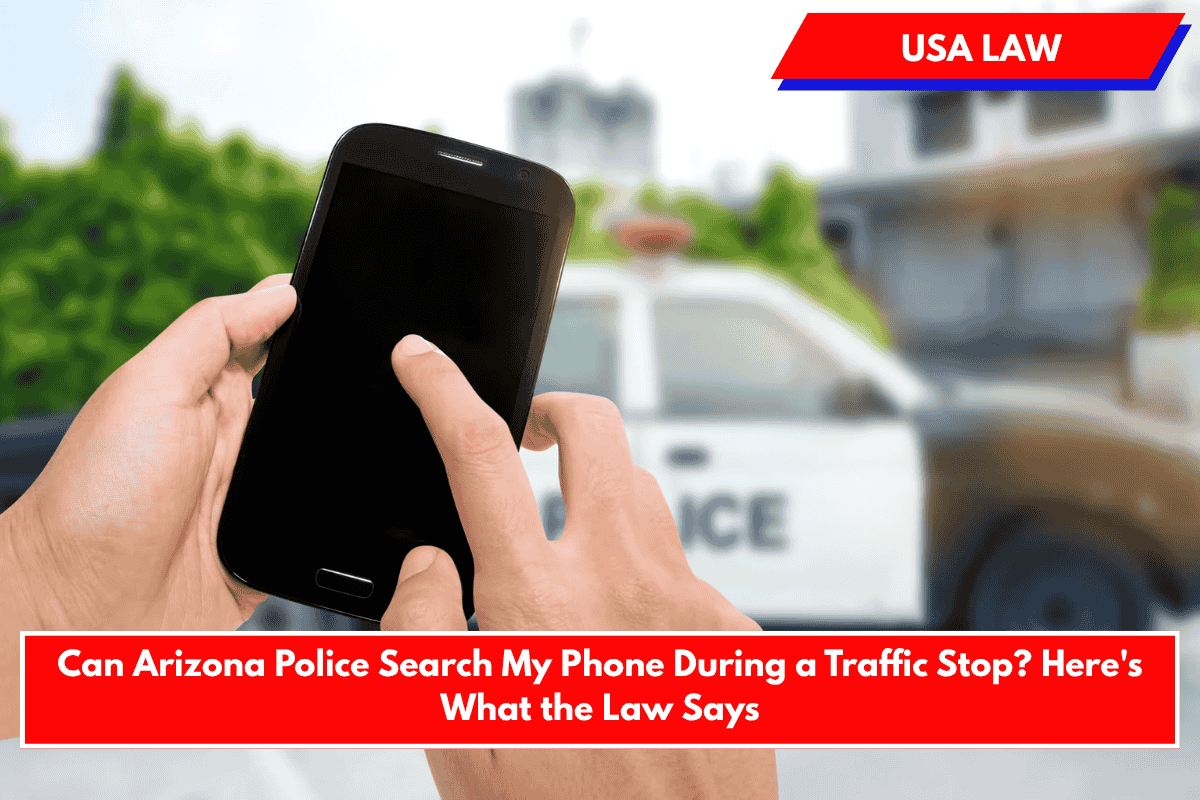In Arizona, police generally cannot search your phone during a traffic stop without a search warrant. Your cell phone is considered highly private, and both the U.S. Supreme Court and Arizona courts have ruled that law enforcement must obtain a warrant, supported by probable cause, to search the contents of your phone—even if you are under arrest.
Key Points of the Law
- Warrant Requirement: Police must have a valid search warrant, signed by a judge, to search your phone. The warrant must specify your name, address, the items to be searched, and a deadline for the search.
- Consent: If you voluntarily consent to a search, police do not need a warrant. However, you are never required to give consent or unlock your phone. Refusing consent does not give police the right to search your phone.
- Exigent Circumstances: There are rare exceptions where police may search your phone without a warrant, such as if there is an imminent threat (e.g., evidence could be destroyed, or a crime could be prevented by immediate search).
- Seizure Without Search: Police may seize your phone as evidence if they have probable cause to believe it contains evidence of a crime, but they still cannot search its contents without a warrant. You are not required to provide your passcode unless ordered by a court.
What If You’re Arrested?
- Even if you are arrested during a traffic stop, police cannot search your phone without a warrant. They may search your person and immediate surroundings, but your phone’s data remains protected.
- Any evidence obtained from a warrantless search of your phone is generally inadmissible in court due to the exclusionary rule.
Your Rights and Best Practices
- You have the right to refuse a search of your phone.
- You do not have to provide your password or unlock your phone unless ordered by a court.
- Ask to see any warrant before handing over your device.
- If police seize your phone, consult a lawyer immediately.
Arizona Police and Phone Searches
| Scenario | Can Police Search Your Phone? | Notes |
|---|---|---|
| Routine traffic stop, no warrant, no consent | No | Protected by Fourth Amendment |
| You give verbal or written consent | Yes | Consent waives your rights |
| Exigent/emergency circumstances | Rarely, only in emergencies | Must justify immediate need |
| Police seize phone as evidence | No (search), Yes (seize) | Still need warrant to search |
| After arrest, no warrant | No | Warrant still required |
Arizona police cannot search your phone during a traffic stop without your consent or a properly issued search warrant, except in extremely rare emergencies. You have strong privacy rights—exercise them and consult an attorney if your phone is seized or searched.
Sources
- https://www.arizonalawgroup.com/blog/can-a-police-officer-search-your-phone-without-permission/
- https://www.youtube.com/watch?v=i4Tgu5_BUjQ
- https://coolidgelawfirmaz.com/can-the-police-search-through-my-phone/
- https://www.suzukilawoffices.com/can-law-enforcement-search-your-cell-phone/
- https://litwaklawgroup.com/can-police-search-your-phone/











